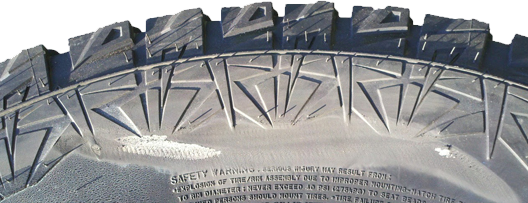
TIRE CONDITIONS
Causes and Corrections
TREAD WEAR - IN CENTER

PROBABLE CAUSE
- Tires overinflated
- Use of oversized tires
APPROPRIATE CORRECTION
- Confirm cold inflation pressure matches vehicle's recommended pressures
- Confirm appropriate rim width and evaluate alternate tire pressures
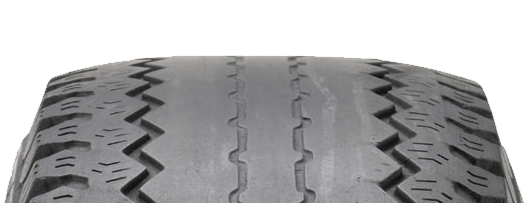
TREAD WEAR - ON BOTH SHOULDERS

PROBABLE CAUSE
- Tires underinflated
- Vehicle overloaded
APPROPRIATE CORRECTION
- Confirm cold inflation pressure matches vehicle's recommended pressures
- Confirm load being carried is within vehicle specifications, reduce as necessary
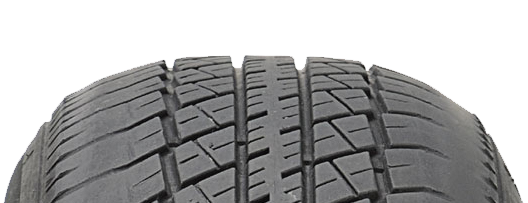
TREAD WEAR - ON ONE SHOULDER

PROBABLE CAUSE
- Wheel alignment does not match actual driving conditions
- Worn or damaged steering/suspensions parts
APPROPRIATE CORRECTION
- Set alignment to most appropriate angles withing vehicle's approved range
- Replace worn or bent parts and align
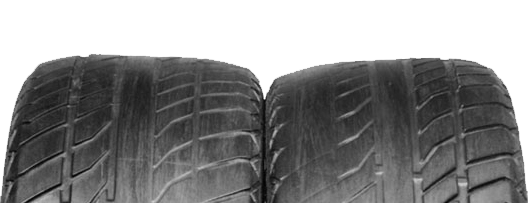
TREAD WEAR - HEEL AND TOE BLOCK WEAR

PROBABLE CAUSE
- Insufficient tire rotation for driving conditions
- Tires underinflated, increasing drag and wear
APPROPRIATE CORRECTION
- Rotate tires more frequently following vehicle's approved pattern
- Confirm cold inflation pressure matches vehicle's recommended pressures
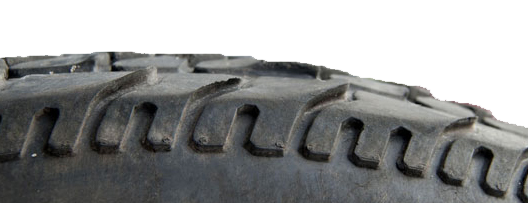
TREAD WEAR - IRREGULAR CUPPING

PROBABLE CAUSE
- Loose steering or suspension components
- Tires and wheels out of balance
APPROPRIATE CORRECTION
- Replace worn struts/shocks and other steering/suspension parts and align
- Correct balance of tires and wheels
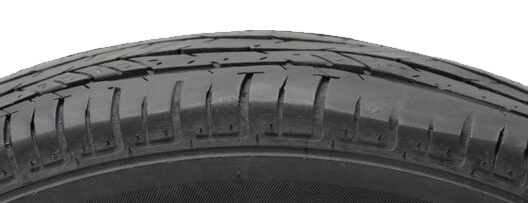
CIRCUMFERENTIAL SPLIT/STAR

PROBABLE CAUSE
- Impact break from road hazard or pothole
- Tire sidewall pinched between road and wheel
APPROPRIATE CORRECTION
- Dismount tire and inspect for interior damage, replace tire if damage is found
- Determine if wheel is bent by inspecting for runout, replace wheel if damage is found
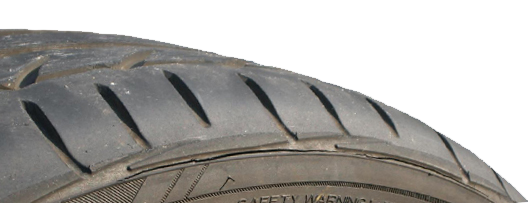
BUBBLE/BULGE

PROBABLE CAUSE
- Tire sidewall pinched between road and wheel
- Components contaminated during manufacturing
APPROPRIATE CORRECTION
- Dismount tire and inspect, tire manufacturer's warranty applies if no interior damage is found
- Dismount tire and inspect, interior damage indicates road hazard
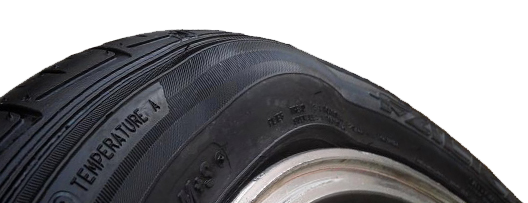
OZONE/WEATHER CRACKING

PROBABLE CAUSE
- Frequent exposure to direct sun and hot temperatures
- Tires exposed to ozone or harsh chemicals
APPROPRIATE CORRECTION
- Evaluate service conditions and attempt to minimize exposure to sun and heat
- Attempt to keep tires away from sources of ozone and chemical exposure
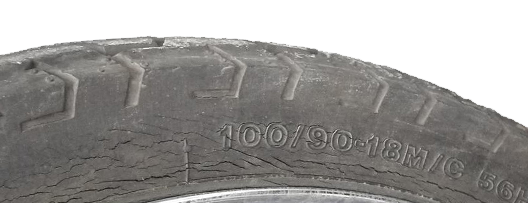
ABRASIONS OF BOTH SIDEWALLS

PROBABLE CAUSE
- Driven on when extremely low on air
- Driven on when flat
APPROPRIATE CORRECTION
- Dismount and inspect tire for interior damage, replace tire if damage is found
